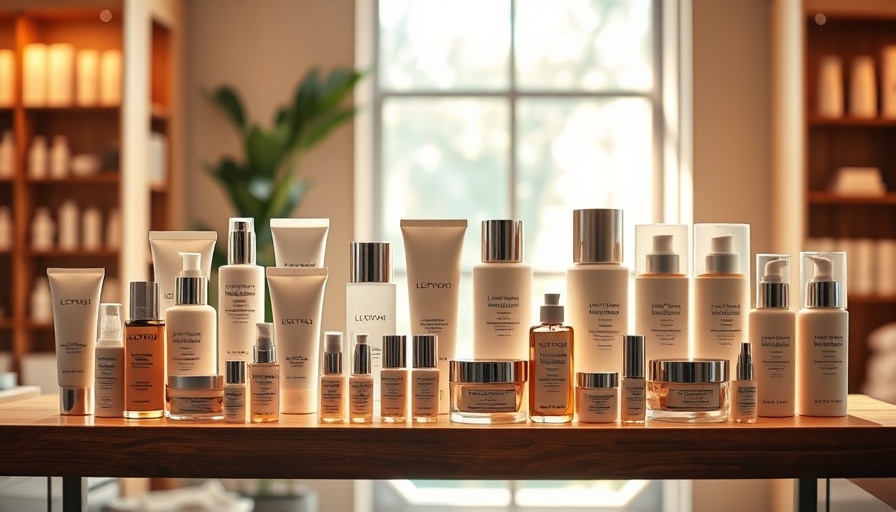
The Rise and Fall of Juice Beauty
Juice Beauty, once heralded as a pioneering name in the clean beauty industry, has hit hard times, recently announcing its intent to liquidate its assets amidst financial struggles. Founded by Karen Behnke in 2005, Juice Beauty staked its claim in the beauty landscape with bold initiatives, such as trademarking the term "clean beauty" and establishing National Clean Beauty Day. However, despite an ambitious vision, the brand's retail sales plummeted to just $25 million last year, far cry from the reported $100 million achieved six years earlier.
Understanding Clean Beauty Today
With clean beauty becoming synonymous across many brands, Juice Beauty’s decline raises pressing questions. What does it signify for the future of clean beauty? The barriers that Juice Beauty faced reflect a market that has rapidly evolved. Many consumers are increasingly informed and seek products that not only adhere to clean standards but also offer aggressive results through scientific backing. As Rich Gersten, Co-Founder of True Beauty Ventures notes, “Clean is a product attribute, not a brand attribute—and it’s far from a true differentiator.”
The Demand for Efficacy
This shift in consumer demand toward products that deliver proven results reveals a crucial truth: while the clean beauty label has its merits, brands must also showcase their efficacy. More and more, consumers gravitate towards products that have clinical backing, effective ingredients, and superior formulations. In the skincare segment, this trend is particularly poignant, as dermatologist-led brands leveraging innovative technology have begun to outpace their counterparts.
Lessons Learned: Adapting to Consumer Needs
Juice Beauty’s experience serves as a cautionary tale for other brands in the clean beauty space. Consumers are now more discerning than ever, appreciating authenticity and stories that resonate with their values. Brands that embrace this shift and combine effective product offerings with a robust community engagement approach will likely not just survive but thrive.
Consumer Engagement and Brand Loyalty
As the beauty landscape shifts, the call for brands to build loyal communities becomes vital. Juice Beauty's narrative illustrates that merely adopting a clean label isn't sufficient; brands need to connect with consumers on an emotional level. Successful brands foster relationships that transcend transactions, creating loyal followings eager to share their experiences. The importance of community in beauty cannot be understated—it’s a factor driving repeat sales and brand visibility.
Future Insights: The Path Ahead for Clean Beauty
With Juice Beauty's challenges, the future of clean beauty remains vibrant but evolving. Established and emerging brands must adapt to continued consumer scrutiny and rising expectations. Meeting these demands will require a combination of integrity in sourcing, transparency about formulations, and commitment to sustainability.
The landscape of clean beauty is set to evolve further. As consumers prioritize efficacy alongside clean attributes, brands must pivot quickly. The road ahead may be fraught with challenges, but with thoughtful strategies and a focus on authentic consumer relationships, the next generation of clean beauty brands can find success in this competitive marketplace.
 Add Row
Add Row  Add
Add 




Write A Comment